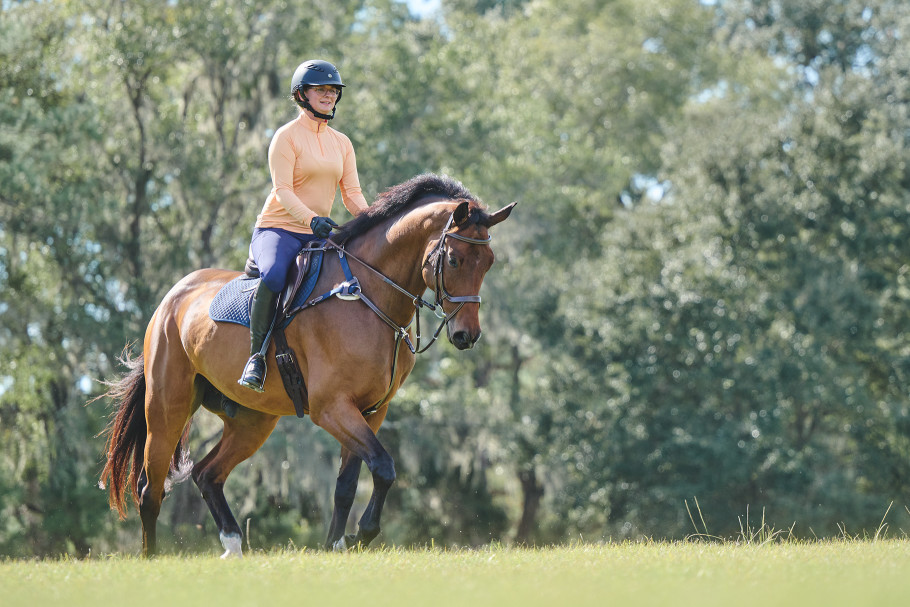Benefits and Risks of Hill Work for Horses
Updated July 27, 2023

It is important to remember a few things about safety before you start to condition a horse with hill work. First, it is important to remember that training differs from conditioning. In her book, Conditioning the Sport Horse, Dr. Hilary Clayton expands on training versus conditioning and how to condition horses on hills.
- Training, or schooling, refers mainly to mind development and understanding proper movement. Examples of training include teaching your horse technical skills, such as the mechanics of a simple or flying lead change, going forward or coming back in the canter in a line of fences, or sitting during a sliding stop in reining.
- Conditioning, or physical fitness, is related to muscle building and cardiovascular health. Conditioning induces physiological and structural adaptations that have dual benefits of maximizing performance and reducing the risk of injury.
Both help to improve the health of your horse. Training in diverse areas allows your horse to stretch new muscles physically and mentally. If you are constantly training in the same indoor arena or a similar setting, your horse will see its training as predictable and possibly not see as a challenge.
Determining the Right Conditioning Program for Your Horse

Before determining if hill work will benefit your horse, consider what you are trying to accomplish. Are you trying to move up a level competitively, so your horse needs to increase his fitness level? Or are you returning her from time off rehabbing an injury? You might also look into working on hills to help compensate for a weakness or recover from an injury.
Another excellent book by Jean-Marie Denoix and Jean-Pierre Pailloux is Physical Therapy and Massage for the Horse by Trafalgar Square Publishing. It describes the effort associated with descent and ascent in conjunction with cavaletti work, which is especially helpful for horses with weak backs, poor muscular strength, and propulsion difficulties. The book also discusses using a “sensory re-education path” to rehabilitate the neuromuscular system and recover coordination by walking the horse over different types and depths of surfaces such as sand, pebbles, asphalt, water, etc.
Hill, ground poles, and work over varied terrain all have specific benefits to horses. They can be utilized for increased performance or successful rehabilitation but must be added gradually and thoughtfully to your existing conditioning program.
Benefits of Hill Work for Horses
There are many benefits to training and conditioning your horse on hills no matter what discipline of riding you do (dressage, racing, jumping, reining, etc.). Keep in mind that working with an experienced trainer to safely design a program that incorporates hill work properly is a smart choice.
- Muscle development and strength gains, particularly through encouraging engagement of the hindquarters as your horse has to step underneath himself. Well-developed muscles in the topline are another benefit of hill work.
- Improved cardiovascular health from conquering the challenge of going uphill.
- Fresh air and a change of scenery from the ring to rolling green hills and fields can do wonders for your horse’s mental health.
- Switching up your horse’s environment may encourage them to use different muscles and helps prevent them from becoming “ring sour.”
- Improved uphill movement, balance, and suppleness.
Risks of Hill Work for Horses
There can be a few disadvantages of working horses on hills, however, if you develop a training program that slowly introduces hill work and respects your horse’s limits, you may be able to avoid these downfalls!
- Hill work can be very physically and mentally demanding for some horses.
- Trot or canter work downhill can cause strain on your horse’s joints.
- Soreness from doing too much hill work at once without proper conditioning.